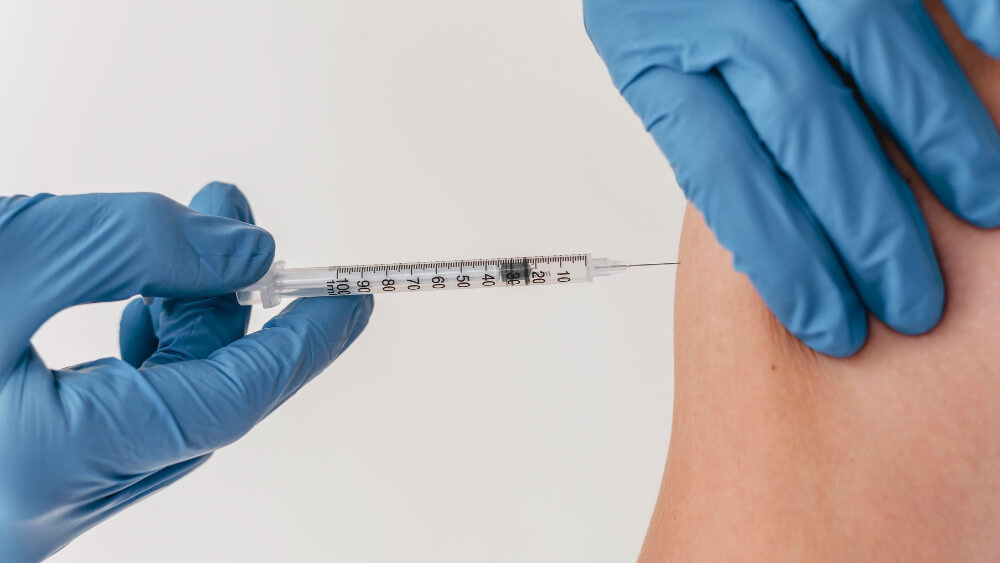Shedding Pounds with Science: A Comprehensive Guide to Weight Loss Injections
For many individuals struggling with weight loss, the journey can feel like an uphill battle. Diet and exercise are crucial, but sometimes, they aren’t enough. Weight loss injections have emerged as a promising new frontier in the fight against obesity, offering a safe and effective tool when combined with healthy lifestyle changes. This article delves deep into the world of weight loss injections, exploring their mechanisms, benefits, potential drawbacks, and how they fit into a comprehensive weight management plan.

Understanding Weight Loss Injections: A Scientific Approach
Weight loss injections are not a magic bullet. They work by targeting specific biological pathways that regulate appetite, satiety (feeling full), and metabolism. Here’s a breakdown of some common types and their mechanisms:
- Glucagon-like peptide-1 (GLP-1) receptor agonists: These injections, like liraglutide (Saxenda) and semaglutide (Wegovy), mimic the effects of the GLP-1 hormone, which slows down stomach emptying and signals fullness to the brain, leading to reduced calorie intake.
- Amylin mimetics: Pramlintide (Symlin) belongs to this category. It works by mimicking amylin, a hormone that helps regulate blood sugar and slows down digestion, promoting feelings of fullness.
Unveiling the Benefits: Why Consider Weight Loss Injections?
Weight loss injections offer a range of potential benefits for those struggling with obesity:
- Enhanced Weight Loss: Studies show these injections can lead to significant weight loss, exceeding what diet and exercise alone can achieve.
- Improved Appetite Control: By regulating hormones like GLP-1, injections can curb cravings and make it easier to stick to a calorie deficit.
- Metabolic Boost: Certain injections may slightly increase metabolic rate, further aiding in weight loss efforts.
- Reduced Risk of Obesity-Related Conditions: Weight loss can significantly improve blood sugar control, potentially reducing the risk of type 2 diabetes. It can also benefit cardiovascular health by lowering blood pressure and improving cholesterol levels.
- Increased Confidence and Self-Esteem: Successful weight loss can significantly boost self-confidence and improve overall well-being.
Not a One-Size-Fits-All Solution: Who Can Benefit Most from Weight Loss Injections?
Weight loss injections are not for everyone. Here’s who might find them most beneficial:
- Individuals with a body mass index (BMI) of 30 or higher (obese) or a BMI of 27 or higher (overweight) with a weight-related health condition, such as type 2 diabetes or sleep apnea.
- People who have struggled with significant weight loss through traditional methods like diet and exercise alone.
Important Note: It’s crucial to consult with a doctor to determine if weight loss injections are a safe and appropriate option for you.
Weighing the Options: Potential Side Effects and Considerations
While weight loss injections offer numerous benefits, it’s important to be aware of potential side effects:
- Gastrointestinal issues: Nausea, vomiting, diarrhea, and constipation are common, especially during the initial adjustment period.
- Low blood sugar (hypoglycemia): This can occur in patients with diabetes, particularly when combined with insulin or other diabetes medications.
- Injection site reactions: Pain, redness, or swelling at the injection site can occur but are usually mild and temporary.
- Gallstones: There’s a small increased risk of gallstones with certain injections.
It’s also important to consider other factors:
- Cost: Weight loss injections can be expensive, and insurance coverage may vary.
- Long-term effects: While generally safe, long-term use of these medications is still under investigation.
- Lifestyle changes: Weight loss injections are not a substitute for healthy lifestyle habits. They work best when combined with a healthy diet and regular exercise.
Beyond the Injection: Building a Sustainable Weight Loss Strategy

While weight loss injections can be a powerful tool, they are just one piece of the puzzle. Here’s how to create a sustainable weight loss plan for long-term success:
- Focus on a Healthy Diet: Prioritize whole, unprocessed foods, fruits, vegetables, and lean protein.
- Embrace Regular Exercise: Aim for at least 150 minutes of moderate-intensity exercise per week.
- Develop Healthy Habits: Focus on sustainable lifestyle changes like mindful eating and portion control.
- Seek Support: Consider working with a registered dietitian or a weight loss coach for personalized guidance.
Taking Charge of Your Health: The Next Step
If you’re considering weight loss injections, here are the next steps:
- Schedule a consultation with your doctor: Discuss your weight loss goals, medical history, and any concerns you may have.
- Get a comprehensive health evaluation: Your doctor will assess your overall health and determine if weight loss injections are safe and appropriate for you.
- Develop a personalized weight loss plan: This plan will likely include a healthy diet, exercise routine, and potentially, weight loss injections, all tailored to your specific needs and goals.
